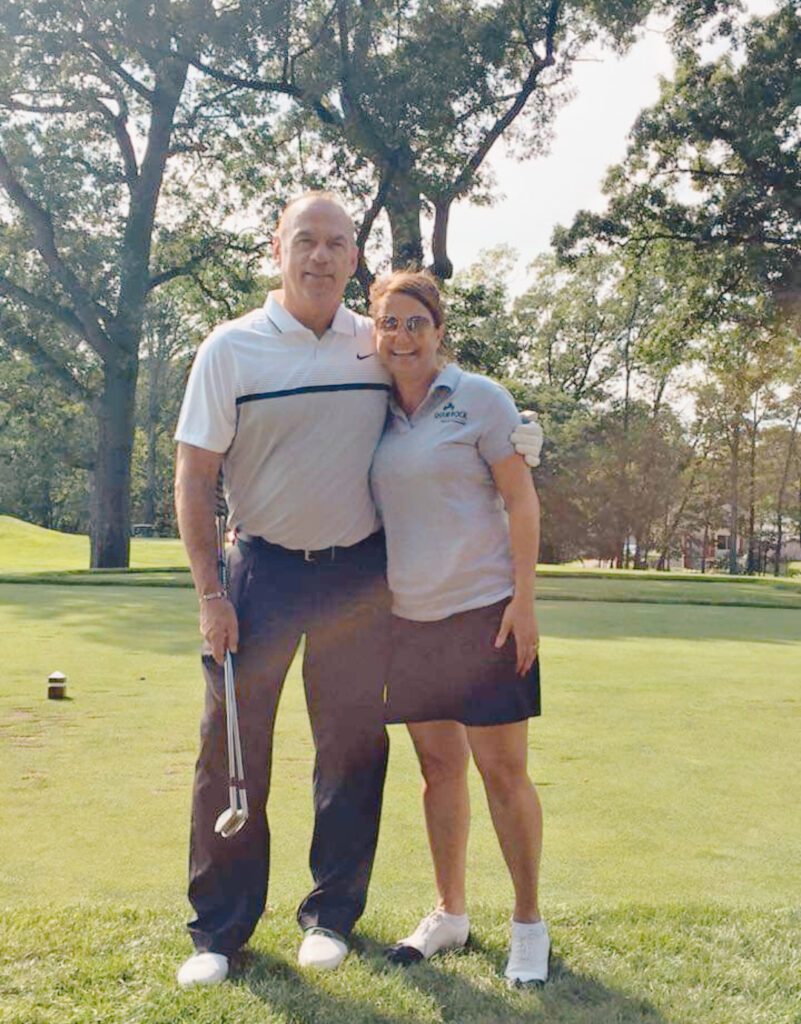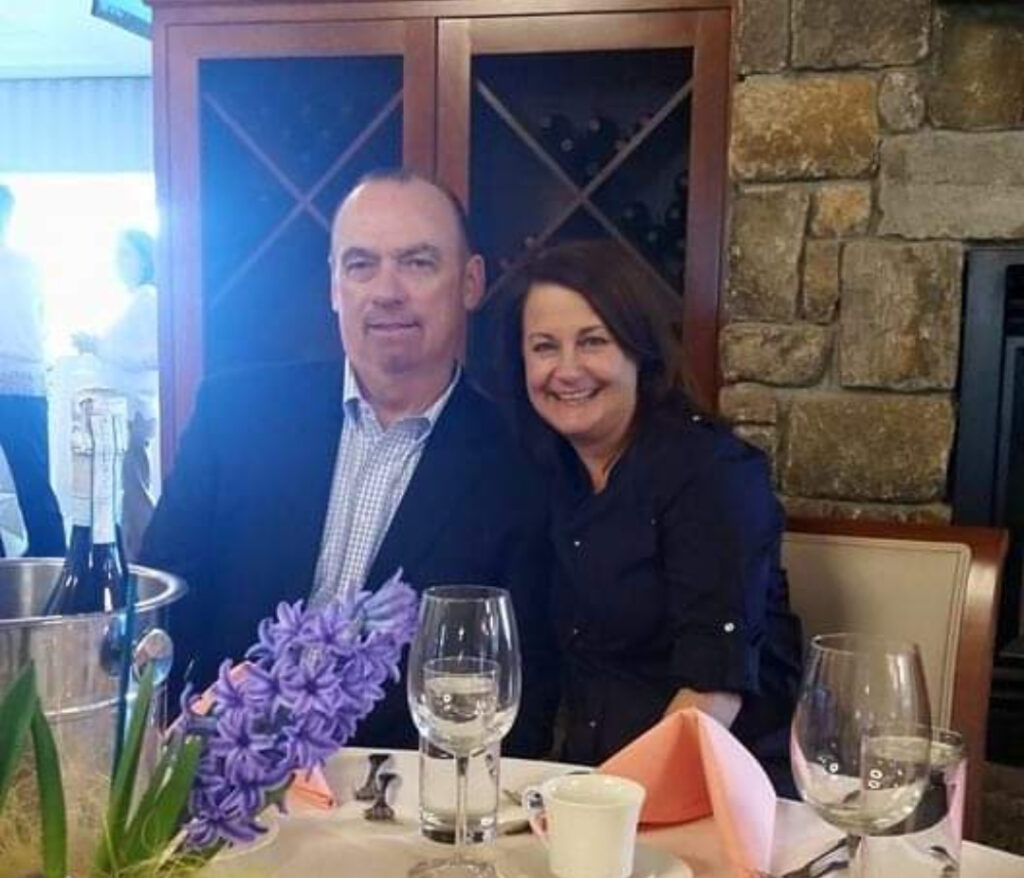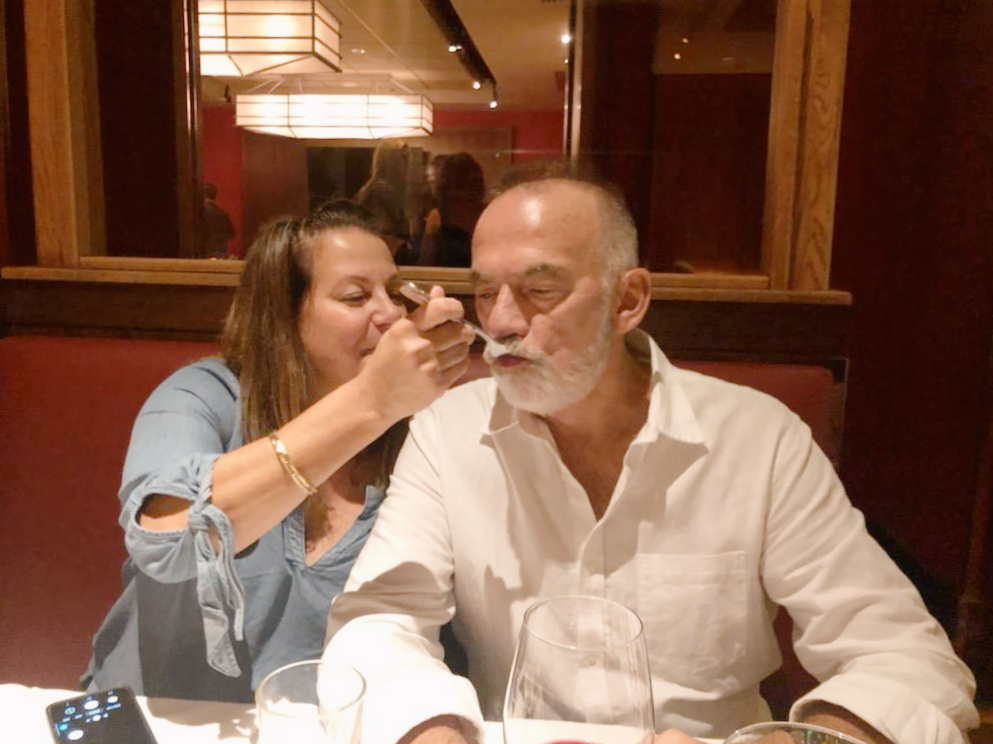After her husband, Bill, passed away, “I was simply frozen,” says Pamela. “This grief, this pain was unrelenting.”
Her HopeHealth grief counselor, John Goncalves, suggested she try journaling as a way to get unstuck. Someday, he said, maybe she could even write her husband a love letter.
“‘A love letter?’” Pamela remembers thinking. “I could not breathe, talk, or basically put a sentence together. How could I possibly write?”
She wasn’t ready to put her feelings into words. But she kept showing up for grief counseling. Months passed. She began reading some of the books John suggested. Holidays and milestones came and went. Talking about Bill got a little easier. Surviving each day got a little easier.
“I began to try to untangle my grief — slowly,” Pamela says. “I was moving forward.”
A year later: Finding the words
Last summer, Pamela stood before the HopeHealth community at A Summer Evening of Hope & Remembrance, an annual event dedicated to honoring and remembering loved ones who have passed away.
As she read aloud from the pages in her hands, she paused to look at the people gathered around her. Like her, many of them were still early in their grief journey.
“I stand before you all today inducted into this club that I never wanted to be a part of — ever. And I know emphatically that you did not either,” Pamela said. “It is true that we are united in loss, but as I look around now, I feel strength and gratitude. I feel the support of the hospice family and all its members.”
Then, as the group nodded along in encouragement, she told the story of her beloved husband — teacher, coach, family man, “gentle giant.”
“Bill was a different breed in his time here on earth. Stronger mentally and physically than anyone that I have ever met in my lifetime,” she said. “He was a man of dedication and honor. He was my whole heart.”

> Read: Talking about my dad: A daughter’s tribute
“Dignity is the word that comes to mind”
The way Bill bore his illness was, as Pamela put it, a “marvel.”
The average prognosis for his diagnosis, a rare cancer, was 6 months. “Bill was with us for six years,” Pamela said, “and he lived! He lived!”
Maybe it was his endurance as a former athlete; maybe it was just his natural constitution, which included an enthusiastic embrace of life and community. Until the very end, he was still frequenting the neighborhood diner for beef stew, his favorite item on the menu.
Even when he began to lose strength and needed hospice care, his sense of humor made everything lighter.
“The banter over the last months of his life between him and his HopeHealth nurses — I could have sold tickets to it and I would have made a boatload of money,” Pamela joked.
Bill had been cautious about starting hospice care. But he immediately took to nurses Annie and Cathy. So did Pamela, who was touched by the genuine trust and affection she witnessed between her husband and his hospice team.
“They developed a great relationship, one filled with compassion and understanding. I cannot and will not forget the care with which Annie and Cathy handled such a gentle giant of a man,” she said. “Dignity is the word that comes to mind.”

> Checklist: What to look for in a hospice provider
Grief, gratitude & a love letter
As Pamela concluded her remarks at the summer remembrance event, she ended with a message just for Bill.
“I will honor, grieve, celebrate and love you all the rest of my days,” she said. “You see, I have learned that grief and love are forever intertwined, at least for me. I’m still sad but I am oh so grateful. Grateful for the time we had together here on Earth, grateful for the whole journey… I do not wish to talk about you because you died; I wish to talk about you because you lived — you truly lived.”
It had been a little more than a year since Bill’s death. Pamela knew that in many ways, her grief journey wasn’t over, and never would be. But she also knew she was in a stronger, better place on that journey than she’d ever imagined.
On this peaceful June evening, surrounded by a community of people who understood her, she was finally ready to do what once felt impossible.
“To my husband, Billy,” she read aloud: “This is my love letter to you.”
Are you coping with grief and loss? Find a virtual grief support group or reach out at (888) 528-9077 or CenterforHopeandHealing@HopeHealthCo.org.

